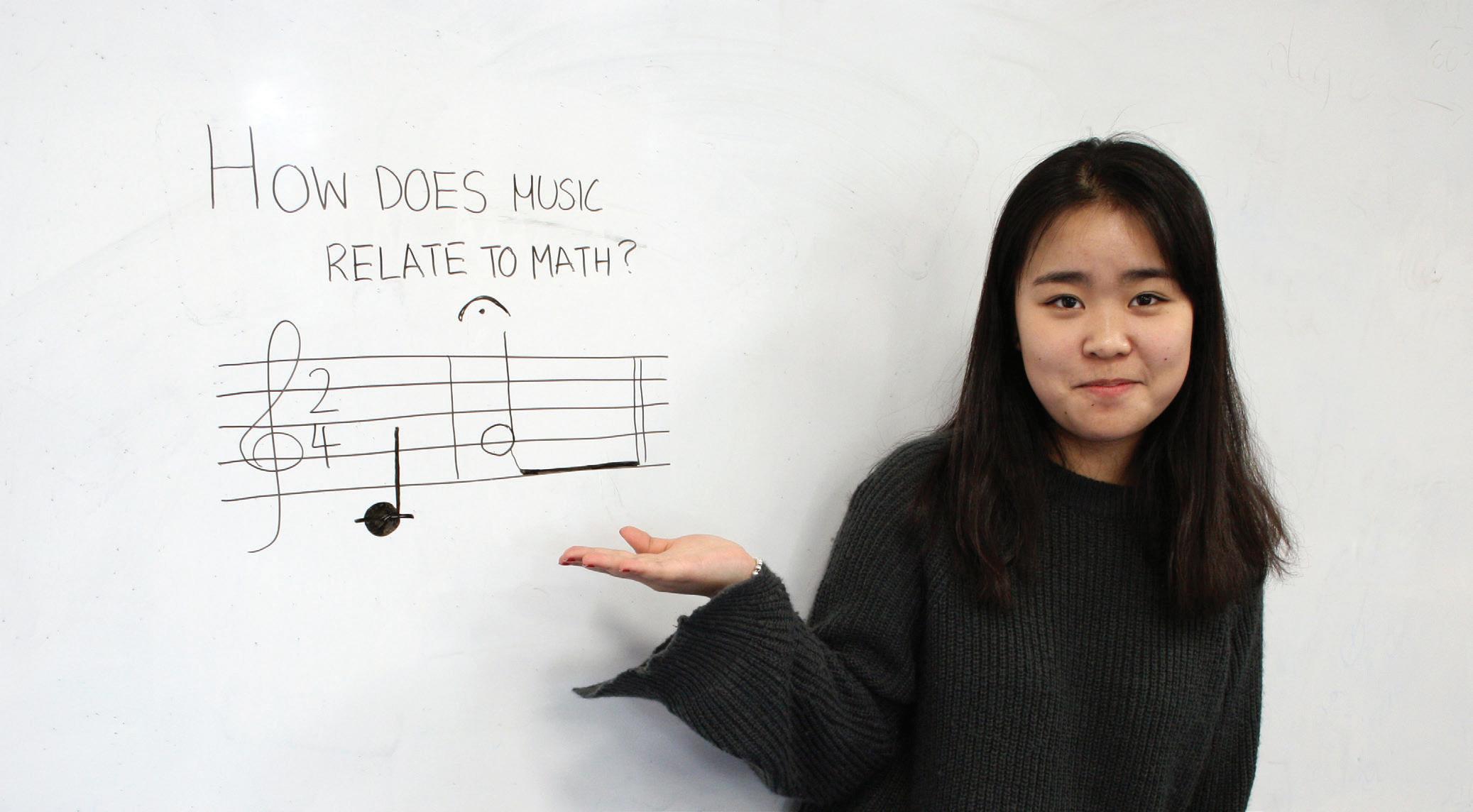
8 minute read
How do student-athletes balance sport and education? Anne Louise Williams
Anne Louise Williams reports...
Louis Tee Jun Jie (above) is a talented golfer residing in Singapore who faced the dilemma many young talented athletes face: sacrifice sport or academic studies when completing the International Baccalaureate (IB) Diploma Programme (DP). Louis was fortunate to be offered support by Singapore Sports School, the IB and World Academy of Sport (WAoS) which enabled him to undertake the DP over 3 years instead of the usual 2 years. He graduated with the DP in January 2019 and commented: ‘The extended DP offered me the time during the day to both catch up on my studies and go for golf training. Had I taken the standard two-year course, I would have had to give up on my sport in order to do well academically due to the rigorous nature of the DP’.
Singapore Sports School celebrated its first group of extended study (3 year) graduates in January 2019, with Louis scoring 43 out of a possible 45 points in the DP. He is one of many student-athletes across IB World Schools who now benefit from the project established by the IB and WAoS to address this question of how high performing student-athletes can better balance their commitments to both sport and education. The pilot project commenced in 2015, with interested schools being assessed by WAoS as to their ability to service the needs of high-performing studentathletes. Successful schools were provided with accreditation as a WAoS ‘Athlete Friendly Education Centre’ (AFEC) and subsequently allowed to offer student-athletes the possibility of undertaking an extended period of study and accessing flexible approaches to study. This initiative has allowed schools to maintain an individualised learning approach based on student need at the school level for those students who meet the criteria of a high-performing student-athlete, rather than a centrally prescribed delivery structure.
In 2018, research was conducted which involved three complementary surveys being developed for DP Coordinators, Heads of Sport and student-athletes attending schools that were participating in the pilot. The results of this research provided vital evidence for the WAoS International Advisory Board and the IB leadership team to inform the approval process of the project which was announced in October 2018. IB World Schools can now continue to assist student-athletes through providing flexible delivery of the DP by gaining AFEC accreditation for those schools and student-athletes who fulfil the respective criteria. Key findings from the research have now been compiled into a research report distributed to AFEC-accredited schools which can provide greater insight to further assist schools in the delivery of flexible options for student-athletes. Some findings from the report are outlined here.
Student-athletes
The pilot project increased access to the DP for studentathletes such as Louis who would otherwise have chosen a
HOW DO STUDENT-ATHLETES BALANCE SPORT & EDUCATION
Student-athletes have to make dif cult choices in balancing sport and education. It is well-known that many students forgo education for sporting aspirations. So at the end of their sporting career...what next? An education is vital for student-athletes to prepare for a dual career approach. Where International Baccalaureate World Schools have prioritised supporting student-athletes through WAoS Athlete friendly Education Centres (AFEC), research has identi ed:
What schools do? Services provided by schools to support student-athletes
Adjusted roles of existing staff
Adjust fee structures for student-athletes
Adjusted timetables Is it helpful for the school to offer student-athletes the option to undertake an extended period of study of the IB Diploma Programme through an AFEC accredited school?
Employed additional staff
Adjusted role definitions of teaching staff Begun to offer online courses such as Pamoja
Created relaxation/quiet spaces Agree 73% 22% Neutral
5% Disagree
Why student-athletes choose the length of time to complete their high school?
Why do student-athletes choose the standard period of study? Why do student-athletes choose to extend their period of study?
I felt that I could maintain the Diploma Programme and my sport commitments I wanted to complete the Diploma Programme with my friends and classmates
I followed advice from my parents
I was not aware it was an option
I followed advice from my Diploma Programme coordinator
I followed advice from my coach So I could continue competing in my sport
To have the best opportunity that I could to successfully complete the DP
The teachers and/or school staff advised that it would be the best option for me
My parents thought it would be the best option for me
My friends thought it would be the best option for me
What do we observe when student-athletes chose to extend their period of study?
Average hours of sleep student-athletes get per week night Impact that completing an extended period of study has on student-athletes lives?
8-10 hrs Suggested average sleep for a 16 year old* 2 Year DP Extended DP
3-4 hrs
4-5 hrs
5-6 hrs
6-7 hrs
7-8 hrs
8-9 hrs
9-10 hrs Positive
Academic
Sport
Social Life Neutral Negative
78% 22%
72% 28%
50% 33% 17%
As part of the Athlete Friendly Education Centres project through the World Academy of Sport and International Baccalaureate Sport Pilot research project, three complimentary surveys were developed for IB Coordinators, Head of Sport and Student-athletes respectively. Distribution of surveys to Pilot schools was completed in March 2018 undertaken by WAoS and follow up supported by the IB World Schools Services Team. The data presented in this infographic represent responses from 12 schools from Singapore, USA, UK, Australia, Hong Kong, Thailand, Denmark, The Netherlands, Lebanon and Jordan. IB Coordinators: 12 Head of Sport: 10 Student-athletes: 109 - Extended IB Diploma Programme: 23, 2 year IB Diploma Programme: 54, Other programme than the IB Diploma Programme: 32
*Suggested average sleep - https://sleepfoundation.org/sleep-topics/teens-and-sleep © World Academy of Sport 2018
different programme of study. 40% of student-athletes who are completing an extended DP reported that they would have chosen a different programme had the extended option not been made available to them. Comparisons undertaken between responses of student-athletes undertaking an extended DP and those completing a standard 2-year DP provided great insights as to the efficacy of the project and its impact throughout the pilot phase. Those completing an extended DP indicated that their academic workload was more manageable when compared with that of those completing a 2-year DP. In addition, the perceived academic capacity of student-athletes undertaking the DP was explored, with more positive responses to this question being recorded by those undertaking an extended DP.
Furthermore, for those completing an extended DP this option had a perceived positive impact on academic studies, sport and social life when compared to student-athletes completing a 2-year DP. However, statistical significance was only evident across these three aspects of their life when comparing how often student-athletes neglected their sport commitments: findings showed that student-athletes who chose an extended DP would sacrifice their sport commitments less often than would those doing a 2-year DP.
Sleep and rest is a fundamental developmental pillar for adolescence. Student-athletes have an additional physical load over and above that of the broader population, as well as needing to ensure that they are properly rested in order to manage their risk of injury effectively. The study demonstrated that student-athletes undertaking an extended DP were getting longer sleep on average when compared with student-athletes undertaking a 2-year DP. This significant finding of the current study has set a precedent for further specific investigation into the area of rest and sleep.
Schools
The most common approach taken by schools to support student-athletes is through adapting existing roles of school staff rather than through taking on additional resources. Practical support for student-athletes was mainly achieved through extension of deadlines, providing a flexible timetable and – to a lesser extent, where it can be facilitated by the school – developing a personalised timetable and selfdirected learning.
At the practical level, schools are faced with an impact on their resources and infrastructure when providing flexibility for student-athletes. To offset this, schools have generally charged an additional year’s tuition fee for those who have extended their period of study. There is no impact for the families of those students who are on full scholarships, but for other students some schools implement a pragmatic approach to this issue by amortising school fees across the time of the student-athlete being enrolled at the school.
The data also suggested some negative impact on studentathletes undertaking an extended DP. These were around negative comments, bullying or peer pressure directed towards student-athletes, which had not been reported or foreseen prior to this research. These findings should be strongly noted by schools as an important outcome of the current research. Strategies to directly address and monitor such issues will be incorporated into the AFEC Professional Development workshops to assist schools in managing such behaviour.
Through the research responses it was observed that there was a strong societal pressure in many countries for students to complete high school with their peer group and classmates, a factor explaining why some studentathletes choose not to extend their study of the DP. Those completing a 2-year DP reported a stronger influence of parents and peers in deciding not to undertake an extended DP, whereas those who did extend their study reported more internalised reasons such as ‘so I could continue competing in my sport’, or ‘to have the best opportunity to successfully complete the DP’. Schools will be able to develop these findings in order to support student-athletes, parents and coaches in making more informed decisions based on their individual goals in the future.
One innovative approach has seen Amman Baccalaureate School, Jordan (a participant pilot phase school) allowing a student-athlete who was undertaking the extended DP to be awarded the school certificate with their classmates – even though they still had an additional year of study to complete before they would complete the DP.
With these findings and many others arising from the research, AFEC schools can now begin to make betterinformed decisions on how best to progress their work in providing flexible approaches to balancing sport and academic commitments for student-athletes. The project has now progressed from its pilot phase to allow all those who meet the respective criteria for AFEC schools and for studentathletes such as Louis Tee Jun Jie and aspiring studentathletes at Singapore Sports School to access flexibility in the IB Diploma Programme.










